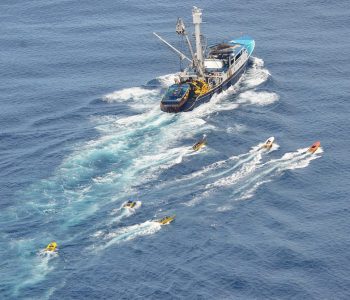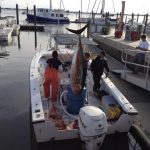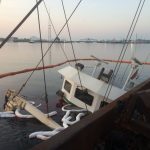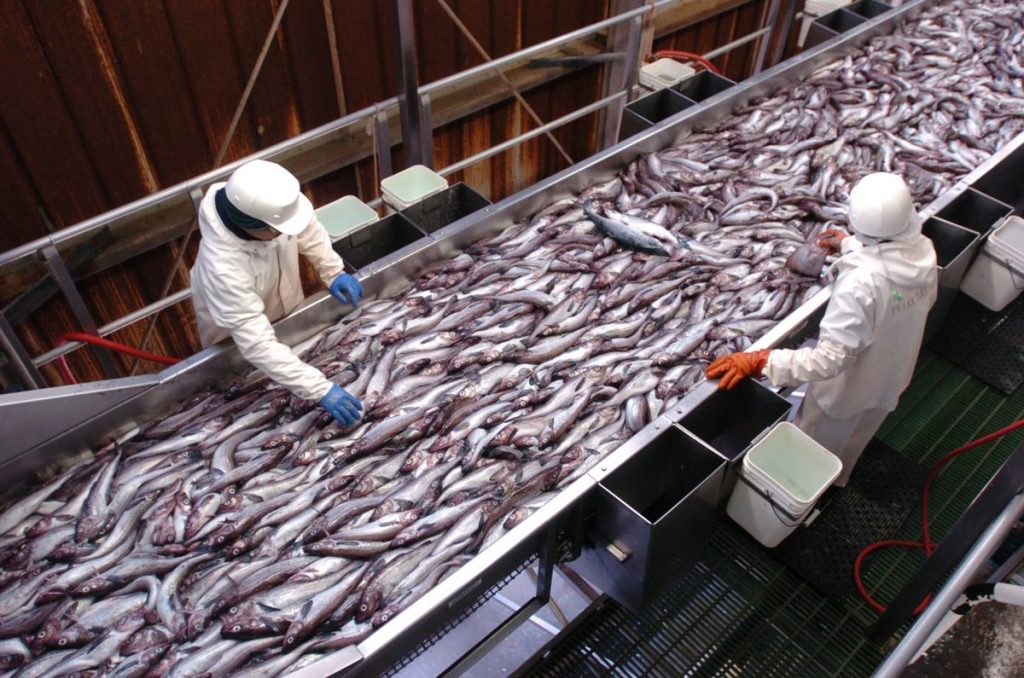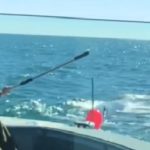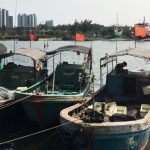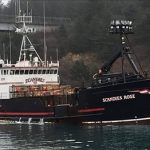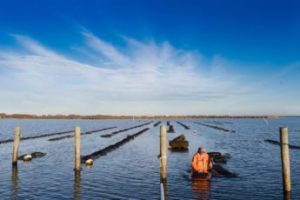Tag Archives: purse seiners
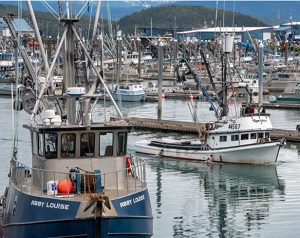
Salmon harvest coming in below forecast
Commercial harvests of Alaska’s iconic salmon are generally below expectation so far this season, particularly in the Copper River, where the preliminary catch to date includes 81,228 reds, 5,815 Chinooks and 1,296 chums. And overall for the drift gillnet harvesters and purse seiners in Prince William Sound, so far it is a smaller run that forecast, with a preliminary collective harvest of some 736,453 fish. That’s according to statewide data compiled by biologists with the Alaska Department of Fish and Game, who update their preliminary harvest report daily and post. >click to read< 09:42
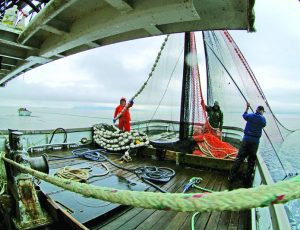
Southeast purse seiners to hold another permit buyback vote
Southeast Alaska purse seine fishermen are preparing to vote on another permit buyback, with an eye toward making the fishery more viable in an era of more efficient vessels and smaller salmon runs. The National Marine Fisheries Service is scheduled to send out ballots to fishermen starting Jan. 15 asking whether the fleet should take on $10.1 million in federal loans to buy out 36 permits, removing them from the fishery forever. If successful, the move would reduce the number of permits in the fishery to 279, down about 100 permits since 2012. >click to read<14:35
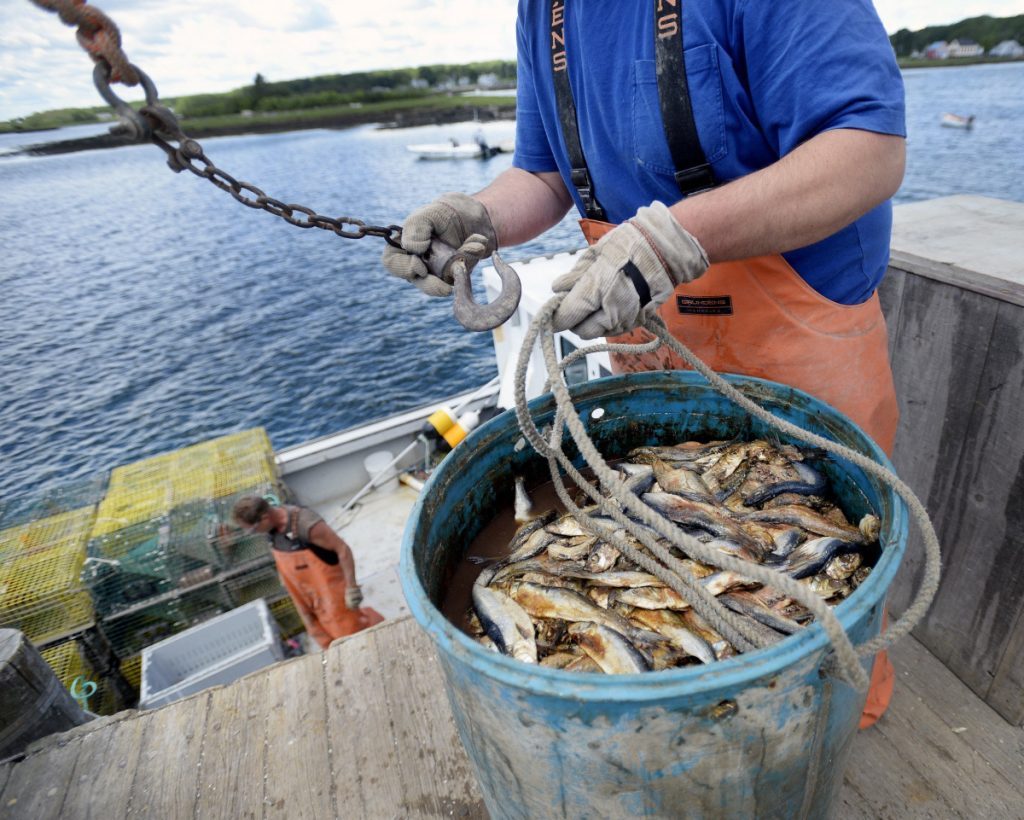
Maine: Pending bait shortage poses another threat to New England lobster industry
Regulators want to cap this year’s herring landings at last year’s levels, or 50,000 metric tons, and slash next year’s quota of the most popular lobster bait from 110,000 to 30,000 metric tons. They want to do this to offset record low numbers of newborn herring that are entering the fishery to replace those that are caught, eaten by other predators or die from natural causes. The 2019 quota could fall even lower if regulators adopt a separate proposal to leave more herring in the sea to feed the fish, birds and marine mammals that eat them, including Gulf of Maine species such as cunner, cod, seals, whales, puffins and terns. The New England Fishery Management Council could decide the issue as early as September. Eco-based Management. >click to read<10:51
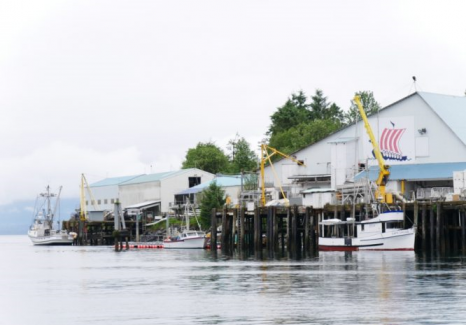
Optimism scarce as commercial fisheries start up in Southeast
Activity is picking up in the harbors in Petersburg this week as fishing boats and tenders prepare for the start of several commercial fishing seasons, but optimism is a little scarce on the docks. Fishermen this summer are feeling the impacts of reduced catches, low forecasts and increasing competition from marine mammals. In South Harbor, Charlie Christensen is readying the Erika Ann for some tendering work in the early summer. Then he’ll switch over to seining once pink salmon start coming in. He has a long list of bad news for his fishing season, stretching back to management decisions by the Alaska Department of Fish and Game for golden or brown king crab. He also points to whale predation on black cod,,, >click to read< 17:22
American Tuna Boat Association – ‘Difficult year’ for purse seiners
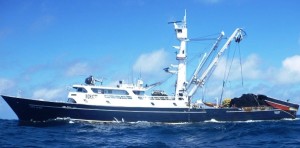 The president of the American Tuna Boat Association is forecasting a difficult year ahead for purse seiners supplying the two canneries in American Samoa. Brian Hallman, who attended last week’s meeting of the Western and Central Pacific Fisheries Commission, says its failure to increase fishing days on the high seas is not a good outcome for the US fleet. He says with no fishing on the high seas or in Pacific Island countries’ waters, vessels will either tie up and not fish or leave the western Pacific area. Read the article here 12:19
The president of the American Tuna Boat Association is forecasting a difficult year ahead for purse seiners supplying the two canneries in American Samoa. Brian Hallman, who attended last week’s meeting of the Western and Central Pacific Fisheries Commission, says its failure to increase fishing days on the high seas is not a good outcome for the US fleet. He says with no fishing on the high seas or in Pacific Island countries’ waters, vessels will either tie up and not fish or leave the western Pacific area. Read the article here 12:19
Tri Marine reports drop in purse seiners calling into port
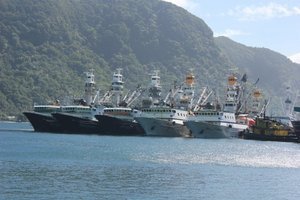 Tri Marine International says it has seen a dramatic decrease in the number of purse seiners calling into American Samoa since the high seas were closed to US flagged tuna boats in June of this year. Not only does this affect the supply of fish for StarKist Samoa and Samoa Tuna Processors it also means a loss in revenue for the government and many businesses that supply the purse seiners. Heidi Happonen, spokesperson for Tri Marine says a purse seiner typically spends between $300,000 and $400,000 when in port. Read the rest here 12:46
Tri Marine International says it has seen a dramatic decrease in the number of purse seiners calling into American Samoa since the high seas were closed to US flagged tuna boats in June of this year. Not only does this affect the supply of fish for StarKist Samoa and Samoa Tuna Processors it also means a loss in revenue for the government and many businesses that supply the purse seiners. Heidi Happonen, spokesperson for Tri Marine says a purse seiner typically spends between $300,000 and $400,000 when in port. Read the rest here 12:46






